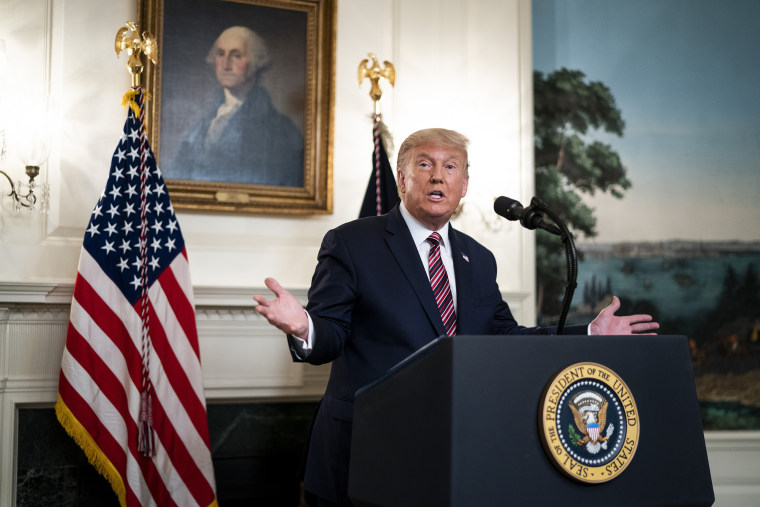Donald Trump knew in early February how serious the coronavirus threat was, but he chose to deceive the public anyway. We know this because the president admitted it -- on the record and on tape -- to the Washington Post's Bob Woodward.
Trump wasn't ignoring the experts and he wasn't incapable of understanding the seriousness of the circumstances. The Republican understood the dire circumstances facing the United States and he made a conscious and deliberate decision to deceive the people of his own country about a life-or-death crisis.
All of which sets the stage for Trump trying to rationalize his conduct. A reporter asked the president during a brief press event yesterday, "Did you mislead the public?" Trump replied:
"Well, I think if you said 'in order to reduce panic,' perhaps that's so. The fact is, I'm a cheerleader for this country, I love our country, and I don't want people to be frightened. I don't want to create panic, as you say."
With his "perhaps that's so" concession, this might have been the first time in recent memory in which Trump admitted, out loud and om camera, that he deliberately misled the public.
He nevertheless took a similar message to Fox News last night, adding, "I don't want to scare people. I want people not to panic."
It's important to understand why this rationalization for public deception is so pathetic.
First, this notion that Trump is a national "cheerleader" -- a word he's repeatedly turned to in order to justify falsehoods -- is hopelessly misguided. In effect, the president is defending himself by arguing that he lied to the American people about a deadly pandemic to make us feel better. But to see "cheerleading" as justification for lying about a public-health crisis is insane.
Responsible leaders don't lie to their own constituents in order to provide a false sense of security. If your defense for lying is, "I wanted to keep you calm," your defense has failed.
Second, Trump's insistence that he's against "scaring" and "frightening" people is kind of hilarious. Before taking office, the Republican tried to stoke public panic as frequently as possible -- note the part of my book in which I described his antics during the Ebola threat in 2014 -- and since taking office, Trump has spent much of his tenure telling Americans that a caravan of MS-13 rapists will soon partner with Antifa to take control of suburban streets.
We're well past the point at which Trump can credibly claim to be an opponent of fear.
And finally, the Republican's posture is all more ridiculous when we see what other world leaders told their constituents: responsible leaders the world over told the public the truth about the COVID-19 threat, took steps to address the crisis, and delivered honest and responsible advice the citizens of their countries could rely on.
Those countries' responses to the pandemic were largely successful. Trump lied, admitted he lied, and has nothing but failure to show for it.

